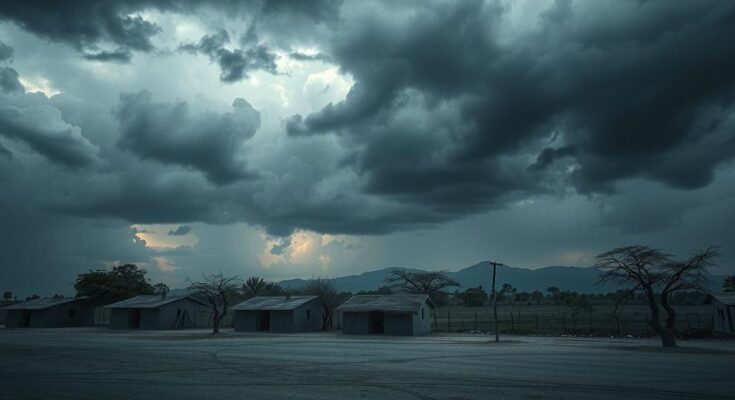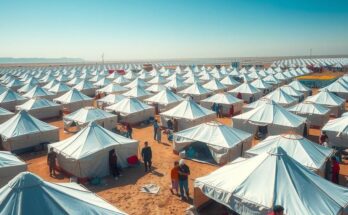South Sudan is at a critical juncture, facing the threat of renewed civil war, according to UNMISS head Nicholas Haysom. He reports escalating violence, particularly against civilians, and deepening ethnic divisions. Urging for immediate recommitment to peace, Haysom warns that failure to act could undo the progress made since the 2018 peace agreement.
South Sudan is hovering dangerously close to another civil war, with intensifying violence and political discord, according to a warning issued by the head of the United Nations Mission in the country (UNMISS) on Monday. Speaking to reporters from Juba via videolink at UN Headquarters in New York, Nicholas Haysom detailed alarming reports of indiscriminate attacks on civilians, widespread displacements, and escalating ethnic divisions.
Haysom stressed the urgent need for all parties involved to retreat from the precipice of war and recommit to peace efforts. He remarked that “A conflict would erase all the hard-won gains made since the 2018 peace deal was signed. It would devastate not only South Sudan but the entire region, which simply cannot afford another war.”
The fragile peace that South Sudan has experienced since gaining independence from Sudan in 2011 remains at risk. Following independence, a civil war erupted in 2013 between forces loyal to President Salva Kiir and those loyal to his former deputy, Riek Machar, resulting in severe ethnic violence and humanitarian crises, culminating in a tenuous peace agreement in 2018.
However, this agreement has seen slow implementation and ongoing political rivalries that have perpetuated already high tensions. Recently, violence flared up on March 4, prompted by the White Army, a militia of youth, attacking army barracks in Nasir, Upper Nile province. The government’s response included aerial bombardments on civilian sectors, utilizing barrel bombs likely containing flammable accelerants. At least 63,000 individuals have already fled the area due to these actions, with reports of severe injuries and casualties, particularly among vulnerable groups like women and children.
Both the White Army and national forces are reportedly gathering for further conflict, alongside disturbing allegations of child recruitment into armed factions. The involvement of foreign forces at the request of the South Sudanese government has also stirred fears, reminding many of the country’s tumultuous past in civil wars.
Political strife is adding to these complications, as Haysom indicated rising tensions among rival factions, particularly against the Sudan People’s Liberation Movement in Opposition (SPLM-IO). Senior officials have faced removal, detention, or forced hiding, while misinformation and hate speech grow more prevalent, exacerbating ethnic divides and hindering prospects for reconciliation.
“Given this grim situation, we are left with no other conclusion, but to assess that South Sudan is teetering on the edge of a relapse into civil war,” Haysom stated plainly.
Meanwhile, diplomatic endeavors to mitigate the crisis have encountered setbacks. Mr. Haysom reported that UNMISS has been actively engaging with regional and international partners, including the African Union and IGAD for mediation efforts. However, a high-level visit by IGAD foreign ministers to Juba aimed at fostering dialogue was unexpectedly canceled by the South Sudanese government without any clear reason. “This is a disappointing development at a time when diplomatic outreach is more important than ever,” he commented.
Haysom strongly urged the leaders of South Sudan to recommit themselves to the 2018 peace deal and uphold the ceasefire. He emphasized the necessity of resolving disputes through dialogue rather than military means. Further, he called for President Kiir and First Vice President Machar to meet and publicly reaffirm their commitment to peace, underscoring that “The time for action is now because the alternative is too terrible to contemplate.”
In summary, South Sudan stands at a precarious crossroads, with its leaders urged to recommit to peace and dialogue amidst rising violence and ethnic tensions. The UN officials emphasize the urgent need for action to avert a devastating regression into civil war. Clearly, diplomatic efforts and unity among leaders will be crucial for South Sudan’s future stability.
Original Source: www.miragenews.com




